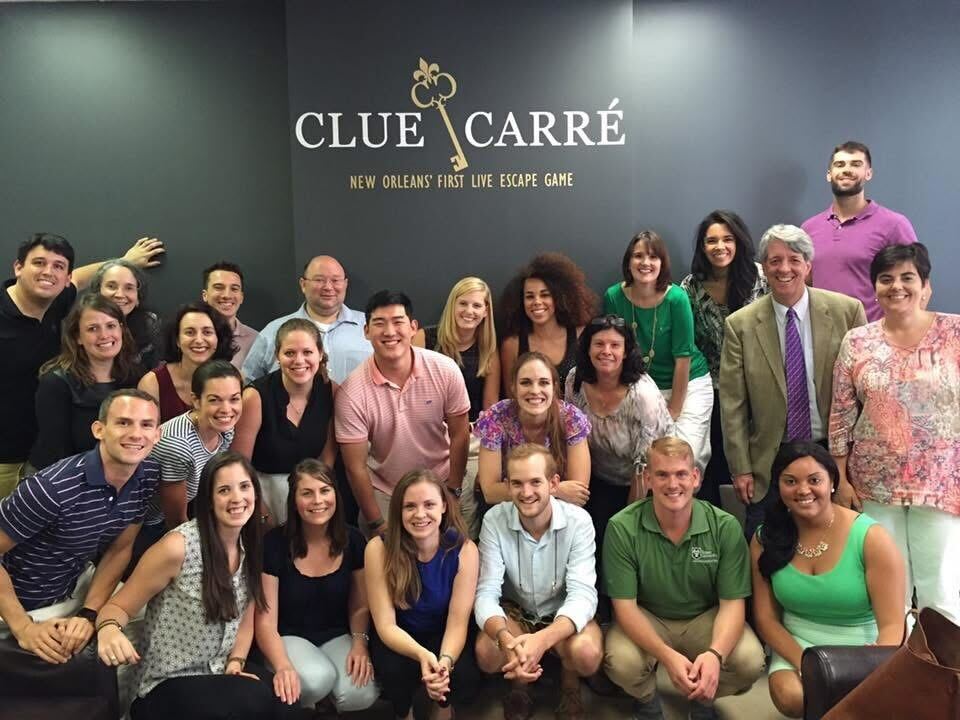10 tips for a great summer staff retreat
With all the chaos in higher education over the last few years, enrollment teams need professional development and morale-boosting activities more than ever. Yet, with constant changes and daily pressures, staff development often falls by the wayside. This summer, prioritize creating a retreat that is joyful, purposeful, and energizing. There is still plenty of joy to be found in this profession, and a well-planned retreat can strengthen your team and pay dividends throughout the year. Think of it as an oasis of hope and positivity amidst the higher ed storm.
This blog is somewhat a Part II of the one I penned last summer: 6 tips to boost higher ed team morale this summer. You’ll see many of those ideas expanded upon in today’s blog.
Here’s how to make your retreat, this summer or otherwise, a success:
1. Run it like a conference
Too often, retreats become leadership-led reviews of last year and goal-setting sessions for the future. Flip the script—let your team take the lead! Have staff propose and present their own sessions, creating a mini-conference format. A Gen Z team member might discuss how their generation engages with TikTok vs. Instagram, or a financial aid expert could break down FAFSA submission for Pell eligible students. The topics matter less than the opportunity for staff to share their passions and expertise. Most importantly, this is a time for leadership to listen, not talk.
2. Get off campus
Yes, budgets are tight, but even a modest change of scenery can shift the retreat’s energy. At Tulane, where I served as the Director of Admission, we held retreats at the New Orleans Museum of Art, Tulane’s riverside Bywater Institute, and every few years, a Gulf Coast hotel near the beach. Consider alumni-owned spaces (hello discounts!) museums, art galleries, or even other college campuses. A new environment sparks fresh ideas and invigorates the team.
3. Ditch the full-day format
Full-day retreats can leave staff more drained than rejuvenated. Instead, try half-day sessions with built-in downtime. A great structure:
- Day 1: morning sessions, team lunch, free afternoon, followed by a group dinner.
- Day 2: morning sessions, lunch, then an afternoon team-building activity.
This keeps energy levels high and fosters genuine connection without contributing to burnout.
Here’s a fun example of a team-building activity from Roosevelt University’s admissions team:

4. Pick a theme and consider the “admission seasons”
A retreat in May has an end-of-cycle celebration vibe. An August retreat can kick off travel season. October might focus on reading season. No matter when you schedule it, a theme helps set the tone—think “The Future of College Admission” or “Bringing Creativity into Our Profession.” A well-chosen theme adds structure and makes the retreat feel more intentional.
Washington State University Vancouver celebrates success throughout the year with themed celebrations. Below you can see their team photos: [left] September’s Instant Decision Day Apple Cup Blitz, and [right] March’s monthly goal celebration an a local ice cream shop, featuring a Lucky Charm mix aptly named Pots of Gold.

5. Start with a big picture discussion
Kick things off with an industry-wide conversation. Assign pre-readings, select a big-topic theme, or choose a common book for a book-club-style discussion. With so much happening in higher ed, these big, open-ended discussions are invaluable for broadening perspectives and inspiring new ideas.
Here are a few suggestions from EAB’s library:
- What you need to know about hyper-personalization in enrollment marketing
- Decision Day: Top Factors That Sway College Applicants
- The great opt-out: 19 students, 19 ways colleges can reconnect
6. Leave time for an open forum
After tackling the big picture, bring the discussion home. What worked on the last cycle? What didn’t? What are school counselors saying? What challenges is your team facing? This is a chance for leadership to listen and for staff to feel heard. As I always say, in admissions, every day is either a great day or a great story someday. Now is the chance for your staff to tell their story.
7. Bring in guest speakers
When I was at Tulane, I invited the CEO of New Orleans’ tourism and marketing organization to talk about how the city promotes itself. The insights were invaluable; it was a captivating presentation, and my team was able to take away valuable insights when promoting New Orleans to prospective students. Local politicians, business owners, campus leaders, or industry experts from organizations like EAB might be willing to speak. All you have to do is ask! I once asked the mayor of New Orleans to come speak… and she said yes!
8. Feed them well
A thoughtful meal can do wonders for morale. Skip the pizza party—reach out to alumni-owned restaurants for a dinner donation. Many people outside higher ed know the industry is struggling and may be willing to help. Plus, you can pitch it as an opportunity for your team to recommend their restaurant to visiting families. If you don’t have alumni-owned restaurants nearby, this is the one place I highly suggest you ask for some additional budget to feed the team well.
9. Invite plus-ones
Host a BBQ or picnic where staff can bring a guest. Meeting a colleague’s significant other, sibling, or best friend can ease workplace tensions and strengthen team connections. A casual social event helps strengthen team bonds in a relaxed setting and makes the retreat feel even more inclusive.
10. Prioritize joy
Professional development is key but so is having fun together. That free afternoon on day one? Think of escape rooms, hiking, volunteering, or even a group workout. I once did an escape room with my team, and it was fascinating to see how financial aid folks approached problem-solving differently than recruiters. Shared experiences—whether they involve bowling or a yoga class—bring teams closer and create lasting memories.

Final thoughts
Retreat planning isn’t easy, but the effort is worth it. A well-executed retreat will energize your staff, strengthen relationships, and set the tone for a successful year ahead. Your team needs this now more than ever—happy planning!

More Blogs

EAB Wrapped 2025: A year of reckoning—and reinvention—in higher ed

Why brand management is your best bet for fighting higher ed’s image problem
